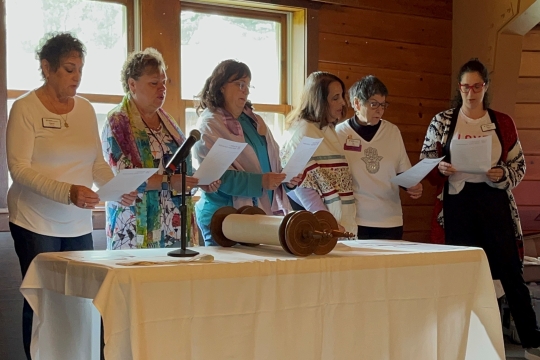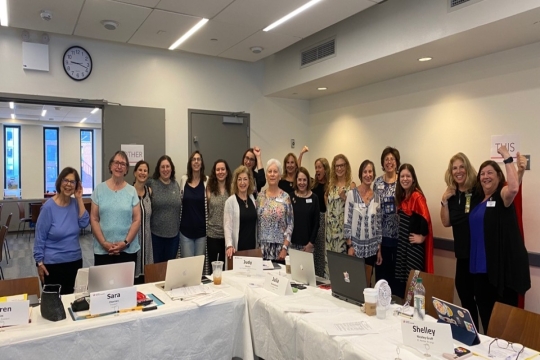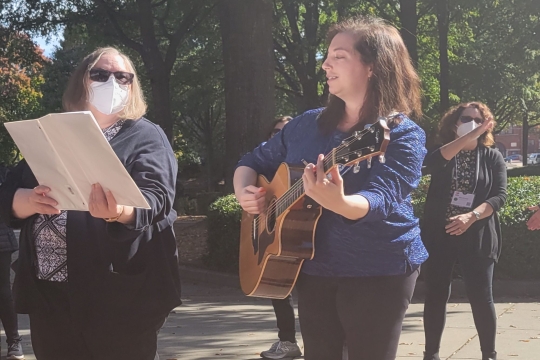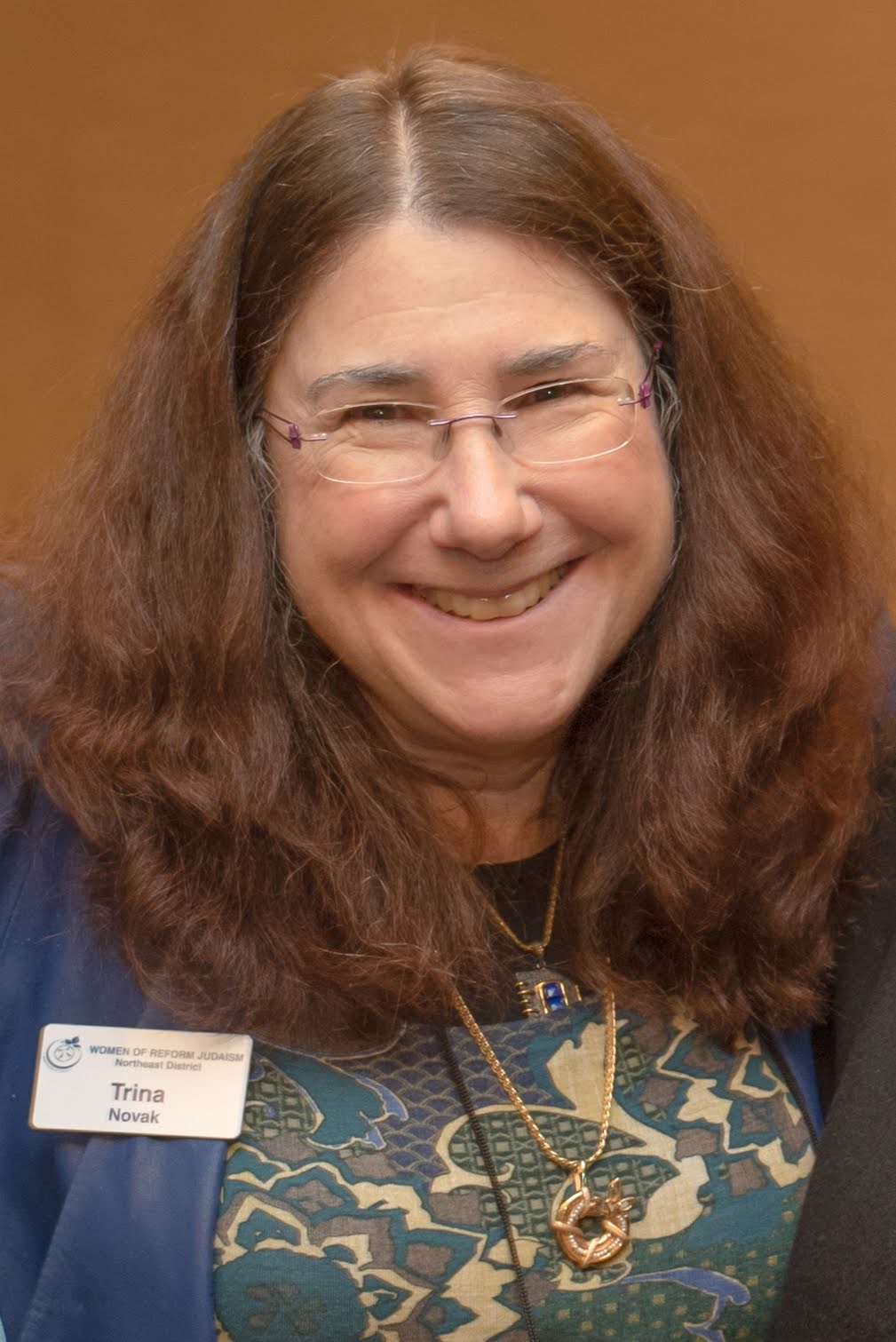
Teach your children well. This is what Moses did after God answered his pleas to enter the Promised Land with a resounding “no.” Moses spoke to the Israelites, most of whom were born during the years of wandering in the wilderness, framing his final speech to the community as if they all had experienced leaving Egypt and had stood at Sinai (or Horeb) and received the Law. Va et’chanan is rich with shared memory and the promise that God will not forget the covenant with the Israelites as long as they follow the laws and rules that were handed down to them.
This parashah suggests a sacred future through emphasizing the transmission of laws, precepts, and traditions to all the generations. The Ten Commandments are repeated with slight variations to make them more impactful to those listening. The Sh’ma, the V’ahavta, and other declarations that are now incorporated into our prayer services and our Passover liturgy are included in this teaching. The Israelites are taught that even if you have strayed from the path, you can turn back, find God, and have a relationship with “all your heart and all your being.” (Deuteronomy 6:5)
In the midst of this teaching, there is an interlude where Moses carries out a command from God that he set aside three sanctuary cities on the east bank of the Jordan River for individuals who accidentally kill someone, providing places of asylum from avenging family members. What do sanctuary cities, places where one can take refuge, have to do with passing down laws and precepts for living a holy life?
A sanctuary is a place of shelter and protection. It is also defined as the holiest space in a religious building.
Moses’s teaching states that the Israelite community’s relationship with God should be based on loyalty (Sh’ma) and love (V’ahavta). A holy community has an obligation to include protections granted under the law to all who reside within. By following these laws and precepts, the Israelites are bound to protect all, including the most vulnerable individuals residing within the community, in addition to providing safe spaces outside the community for those who accidentally committed the most grievous of sins.
WRJ and our Reform community have been on the forefront actively advocating for the most vulnerable in our society. Our women have been praying with their hearts, their souls, and the “soles of their feet” by lobbying for sensible immigration policies. Our efforts began with our Immigration Bill Resolution in 1915 urging President Woodrow Wilson to veto an immigration bill demanding that all immigrants pass a literacy test. We are continuing to take action today in support of DREAMERS and in protest of family separations and the camps on our southern borders. It is our moral imperative to protect these individuals, many of whom are asylum seekers fleeing their homes because their lives are threatened. Not only are we advocating for sanctuary cities, but many are also advocating for their temple homes to serve as sanctuary spaces.
In addition, WRJ is currently partnering with the Religious Action Center to advocate for Reproductive Justice. This includes places of sanctuary, privacy, and shelter for those who need to make decisions about their reproductive health and welfare. While some of our women are speaking out against restrictive laws in their states, others are lobbying to make their states sanctuary spaces where women can have complete access to reproductive health care and services.
We need to teach our children love and respect for all who reside in their communities, starting with their parents and families, extending to their neighbors and friends, and finally to those who may be considered strangers in their midst. This aligns with our basic tenets beginning with the Ten Commandments and expanding to the rest of the mitzvot. They need to remember that we were a community of sojourners and wanderers who were blessed to enter the Land because of our covenant with God.
“Biblical monotheism thus comes with a mandate: as God’s partners, it becomes humanity’s responsibility to maintain God’s universe through right behavior and social justice.” (Tikva Frymer-Kensky z”l, The Torah: A Women’s Commentary, p 1082.) WRJ exemplifies this statement by creating and supporting caring communities, by participating in advocacy efforts, and by empowering women’s voices.
Trina Novak is the president of Women of Reform Judaism Northeast District and a WRJ Board member. She is a past sisterhood president and member of the Sisterhood of Temple Beth Shalom in Needham, MA. A retired special needs teacher, Trina resides in Needham, MA and enjoys the loving connections she has with husband, Jim Mavor, her two adult children, David and Danya, her standard poodle, Bailey, and her extended family of WRJ sisters. On occasion, she can be seen dancing on the streets with her other women’s group, Muddy River Morris.
Related Posts

Parashat Yom Rishon shel Rosh HaShanah

Cultivating a Culture of Accountability and Belonging


